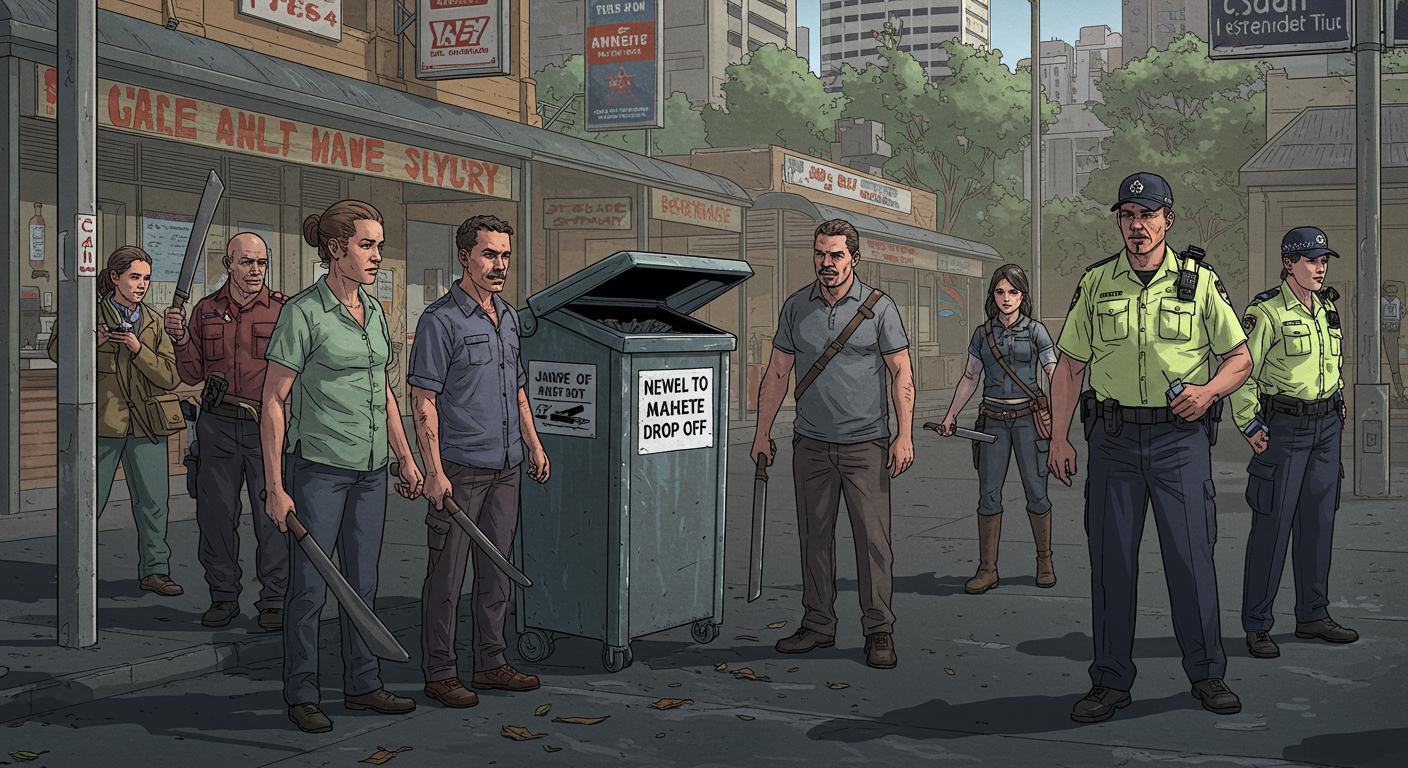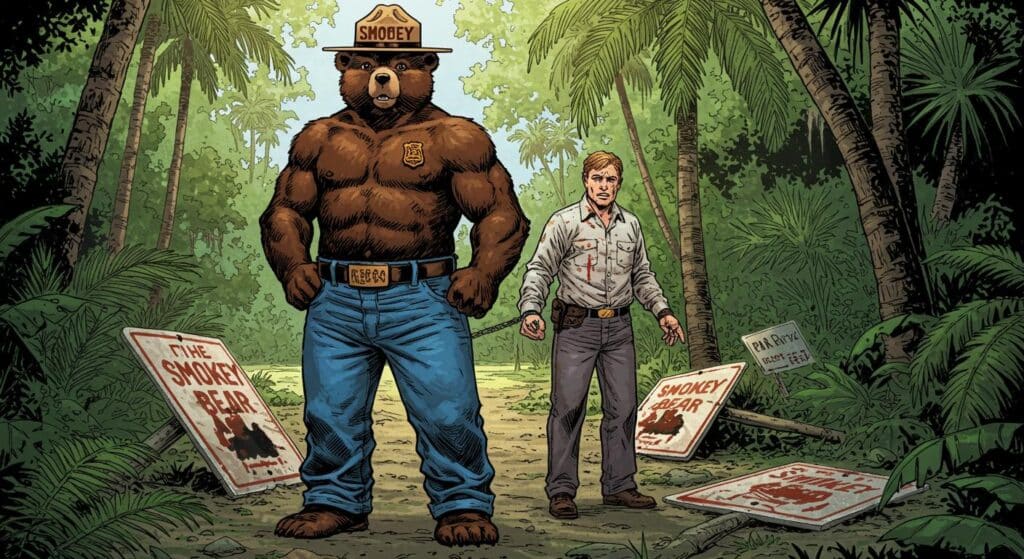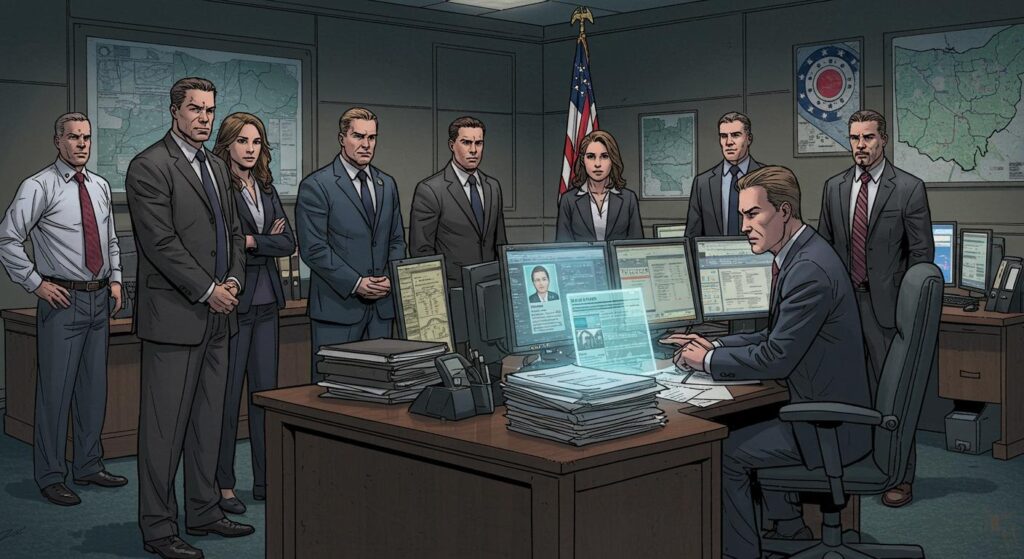Sometimes, a headline lands with such bewildering specificity you need to read it twice. Case in point: “Victoria has rolled out machete disposal drop off bins, amnesty will be provided.” This isn’t a delayed April Fools’ joke or a niche art installation—it’s an actual, government-endorsed initiative that, arguably, says something quietly profound (and just a bit odd) about modern life in Australia.
Bin There, Done That
Starting on September 1st and continuing through November 30th, Victorians will have the opportunity to dispose of any surplus machetes—yes, machetes—at designated police stations across both metro and regional areas. According to the official announcement from the Victorian government, 45 purpose-built bins will soon be in place. During this three-month window, individuals can surrender their machetes without fear of prosecution.
While perhaps sounding like a service dreamed up during a particularly spirited council meeting, this initiative exists for a reason. The government documentation clarifies that the amnesty comes in tandem with new machete restrictions, but maintains exemptions for agricultural, traditional, cultural, and historical uses. Retailers also get their own set of instructions—because apparently we live in an era where, somewhere, there’s a retail stocktake spreadsheet with a “machete (bulk)” row.
Notably, the map of disposal bins isn’t live yet, so, for now, those with excess bladed implements will need to stay tuned. A faint inconvenience for the well-armed procrastinator.
When a Machete Bin Becomes Necessary
It’s tempting to ask: what prompted this? 9News reports that dozens of police stations, spanning not just Melbourne but the wider state, are scheduled as collection points. Officials told the outlet that the program is an effort to address a rise in machete-related incidents appearing in police work—a trend that’s enough to warrant, if not outright concern, then at least a citywide rethink about where one keeps their farm tools.
Footage reviewed by The Age further illustrates the practical rollout of these bins, with discussions underway in multiple communities. Earlier in the report, it’s mentioned that these police stations will soon resemble the world’s least comforting recycling centers, offering a mostly anonymous clunk of steel in exchange for, one assumes, a slightly less nervous police force.
There’s a certain comedic undertone in imagining the logistical planning. Is there an official ribbon-cutting? A press conference with a ceremonial (safely blunted) blade drop? Or do the bins just quietly appear, ready to perform their peculiar civic function?
Reflections on the Unattended Blade
When a community requires dozens of bespoke machete disposal bins, it’s not the weirdest thing about modern life—but it’s hard not to be fascinated. The government’s page matter-of-factly covers agricultural exemptions, traditional and historical uses, retailer compliance, and more, as part of the broader legal shift. No panic, no drama—just pragmatic instructions for a society that apparently needs to calibrate how it interacts with large blades.
It’s a policy response that walks the fine line between inventive public safety and a very specific acceptance of reality. After all, how did Victoria reach the point where “machete amnesty” is not only necessary, but mapped out, regulated, and published with FAQ sheets?
Maybe this is the clearest sign that the genuinely strange isn’t lurking somewhere far from home; maybe it’s what happens when bureaucracy meets the unexpected detritus of daily life. As Victoria prepares its drop-off sites, there’s a lingering question: a year from now, will anyone even blink if another region follows suit with, say, nunchuck bins?
Or are machete drop-off points just what community safety looks like in 2025?







